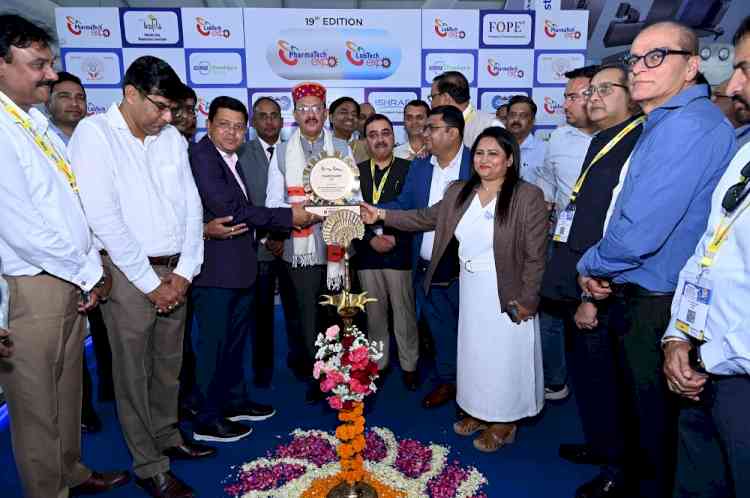Digital transformation and R&D to determine future of Pharma industry: Simon Gallagher
India's domestic pharmaceutical market is estimated at US$ 42 billion in 2021 and likely to reach US$ 65 billion by 2024 and further expand to ~US$ 120-130 billion by 2030

Chandigarh, December 31, 2021: India's domestic pharmaceutical market is estimated at US$ 42 billion in 2021 and likely to reach US$ 65 billion by 2024 and further expand to ~US$ 120-130 billion by 2030. The 'pharmacy of the world' holds the potential to alter the quality of life in the world with its large talent pool of researchers, engineers, and doctors. When put to the test under the pandemic, the domestic industry worked closely with the global ecosystem to develop therapies and vaccines to control the spread of the deadly virus. Forecasting the future of the healthcare and pharma industry, Simon Gallagher, General Manager (Interim), Takeda India, said that the same truly global spirit of collaborations and partnerships should guide the future of the pharma industry that can change the healthcare infrastructure of the entire nation.
As the year 2022 unfolds, the industry can be seen realigning efforts towards developing cures and treatments for other diseases. Discourse on prioritizing treatment for rare diseases has gained prominence and is expected to develop further in the forthcoming years.
Commenting on the upcoming trends in the pharma industry, Simon Gallagher, (Interim) General Manager at Takeda, India, said, "The pharmaceutical sector became more focused on innovation and technology over the past two years of change. A huge phygital (physical + digital) transition was witnessed with the emergence of a hybrid model of engagement with Health Care Professionals. In the coming years, the industry is expected to level up digital capabilities and technology adoption to create personalized tools for patient care. The opportunity lies in improving virtual tools to build immersive patient experiences. The future of pharmaceuticals is dependent on industry research and development, not just to combat COVID-19 but also to combat other diseases. The power of innovation shall help the industry unlock ways to make quality care more accessible and shall pave the way for better medications and pharmaceutical instruments."
An emerging focus can be seen towards leveraging data and digital across all levels to understand patient journeys better and simplify the treatment processes. Against traditional medicine, the coming years are expected to witness investments in cell and gene therapies to change the course of acquired human diseases.
Despite numerous upcoming therapies, the past two years have taught us that the key to advancing healthcare in India would remain to make quality care accessible to the underserved communities. The years to come can thus see the pharmaceutical companies working closely with the public sector to bridge infrastructural gaps to enhance timely diagnosis through widespread awareness, collaborating to create a mindset for research, and bringing in innovations to fulfill the healthcare needs.


 cityairnews
cityairnews 








